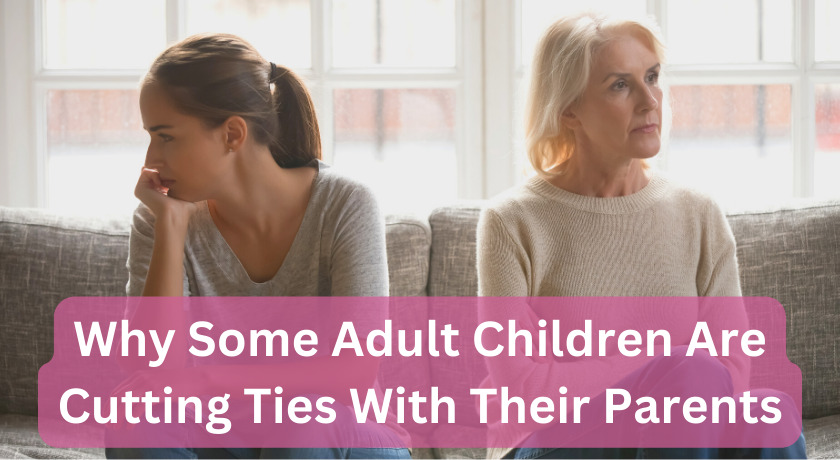A 2020 study on family estrangement found that one in four Americans have cut ties with a relative in their life. Similar results were also found in the UK, Australia, and Canada.
But the “silent epidemic” of adult children distancing themselves from their parents is fairly new as something to be a norm. So why is it that it’s happening? There are a number of answers to this question.
A huge factor in family estrangement is unresolved issues between the parent and child. This can range from disagreements on certain values, to being about childhood trauma that was never addressed.
Psychologist and parenting coach with Psychology Today, Jeffery Bernstein, suggests that as children grow up, they begin to develop their own identities – which is complementary with possibly differing values on certain concepts of life, whether it’s sexual orientation, political viewpoints, or just general adult decisions like who you’re romantically involved with or what you decide to do for a career.
By 2012, a study from Stanford University showed that many parents were unhappy with their children who believed in their rival political party, leading to estrangements.
All of these ideals, if not properly discussed between a parent and child, can lead to extreme feelings of resentment and misunderstandings between each other’s feelings.
Parents who were abusive – not necessarily physically, rather emotionally neglectful – often don’t address that they were nor openly talk with their children about what either of them were going through so that they could each reach a point of understanding.
Another source of estrangement is when parents are reluctant to allow their children to become independent.
Bernstein points out that parents in these circumstances are often too nostalgic while also feeling a need to control, as they did (to a certain extent) while raising their children.
“Parents may have a hard time letting go of the memories of their children as young, dependent individuals, and struggle to see them as independent adults,” Bernstein writes. “Another reason is that parents may have a natural inclination to protect and care for their children, even as they become adults, and may have difficulty adjusting to a new dynamic where their child is more self-sufficient.”
He adds, “parents may not have enough exposure to their adult children’s lives and may not fully understand the level of responsibility and independence they have achieved.”
So again, it’s about mutual understanding and exposing yourself to what your child has accomplished, not necessarily without the parent, but in a sense because of the parent and how they raised them.
Lastly, parents can sometimes be particularly critical of their children – throughout childhood and sometimes into adulthood.
This can make a child feel unaccepted or as if they are a disappointment to their parents. As a child, all you want is to make your parents proud, seeing as though they are the ones who brought you into this world. But when nothing you do seems to be enough for them, there comes a point where you just give up on trying to impress them and start doing things for yourself.
Although this could be seen as something that is in the direction of being a true individual, it still leaves behind a lot of emotional harm and unresolved issues between the parent and child.
So how can a parent reconcile with their estranged adult child? Through thoughtful and attentive conversation and, most importantly, empathy.
A recent study by Ohio State University surveyed more than 1,000 mothers and found that of the ones who were distanced from their children, nearly 80% blamed their estrangement on somebody in their child’s life who turned their child against them.
While this might be the case in some scenarios, it still doesn’t provide either party the opportunity to explain their side of the story.
By talking through what has driven you apart, all while changing your own perspective to try and understand and feel what the other person has gone through or is going through, only then can you find closure and possibly even reconciliation in why your child has cut ties with you. Although it may not prove to recreate your relationship with each other, it at least gives you an answer as to why.
Sources:
https://news.osu.edu/study-examines-what-makes-adult-children-cut-ties-with-parents/



